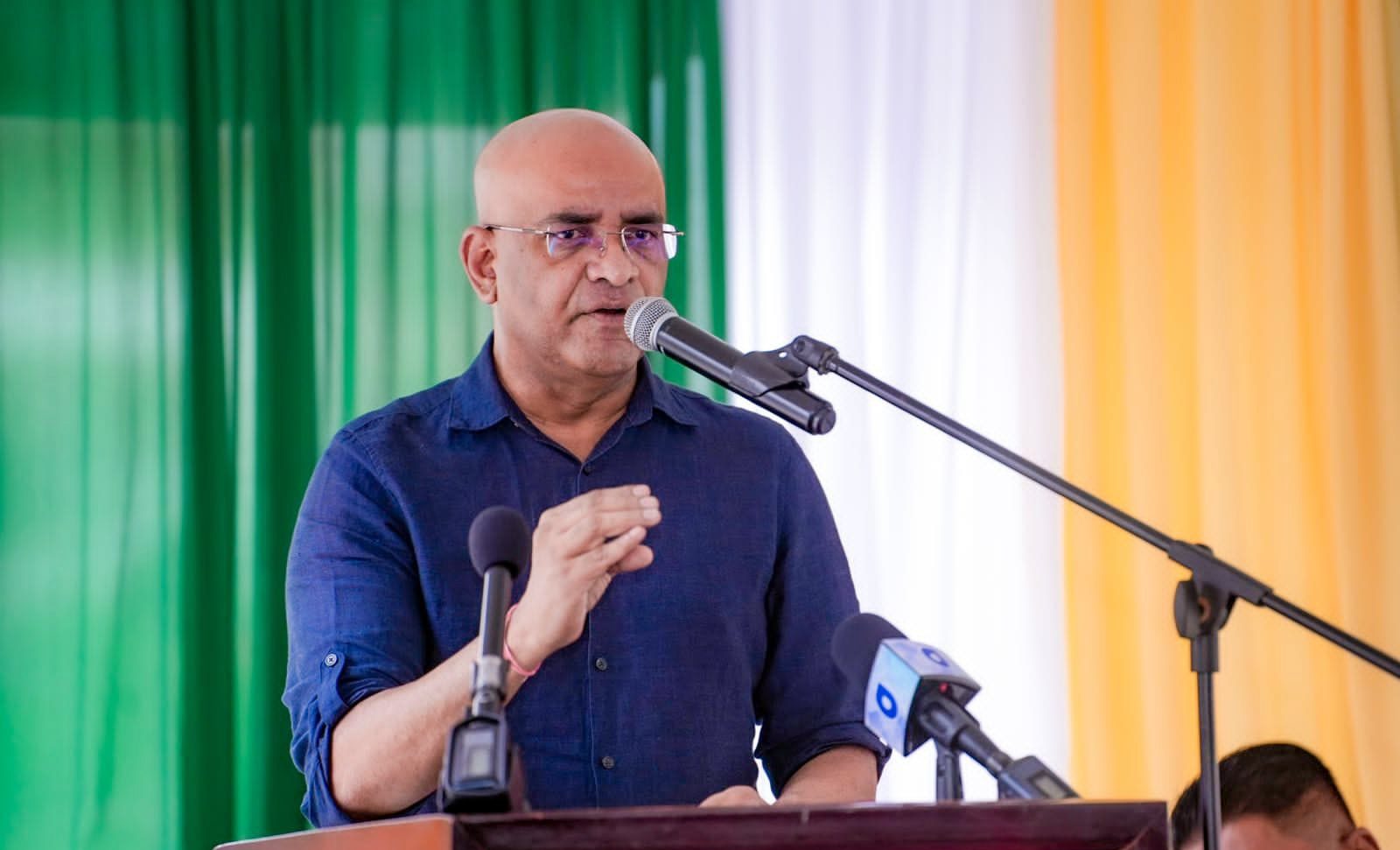Vice President Dr. Bharrat Jagdeo said he has seen many oil-producing countries around the world splurge their windfall revenues and have nothing to show for it in the end. This, he said, will not be a fate that befalls Guyana on the current government’s watch.
He made the comments during a meeting with fishermen in Georgetown, taking the opportunity to strongly disagree with sentiments made in some quarters that Guyana should mandate a much higher fiscal take for itself from oil production and see to it that its people do not have to work.
The VP said that the people of the United States, one of the world’s largest producers, work hard. Oil, he explained, will not guarantee automatic prosperity. In this regard, he pointed to Venezuela which had production levels in the millions of barrels of oil per day.
“And [now] they don’t have food in Venezuela. People had to flee,” the Vice President reminded. Guyana, even before it began to tap into its oil revenues, took in thousands of Venezuelan economic refugees.
There has been advocacy in Guyana for the government to issue millions in cash grants from oil revenues to the citizenry on the basis that the people are the owners of the oil and gas resources. But Jagdeo said that this mentality threatens to return Guyana to the days when it was a poor country before the change of administration in the early 90s.
The VP pointed out that the administration that governed Guyana from 2015 to 2020 adopted a wasteful spending practice of devoting the bulk of the budget to recurrent expenditures and little to capital projects that would have lasting value.
He said when the current administration took over, it committed to prioritising such capital projects. This is seen in the 2021 budget, with tens of billions of Guyana dollars being steered toward revitalising the country’s infrastructure and improving the quality of and access to critical social services.
The Vice President said the government will prioritise oil revenue spending on providing the following:
- Free public university education, scholarships, and technical and vocational training;
- World class healthcare for all with new and upgraded hospitals;
- A diverse economy through targeted investments in non-oil sectors such as information and communications technology (ICT) and agriculture;
- Equity for children, the elderly and people living with disabilities.
While the government plans to spend revenues from oil on these areas, Dr. Jagdeo said a significant amount will be saved for future generations. Guyana’s 2021 budget estimates spending of approximately 60% of oil revenues in the first four years of production, totaling more than US$3.4 billion. For the same period, it is estimated that approximately US$2.4 billion will be saved.



